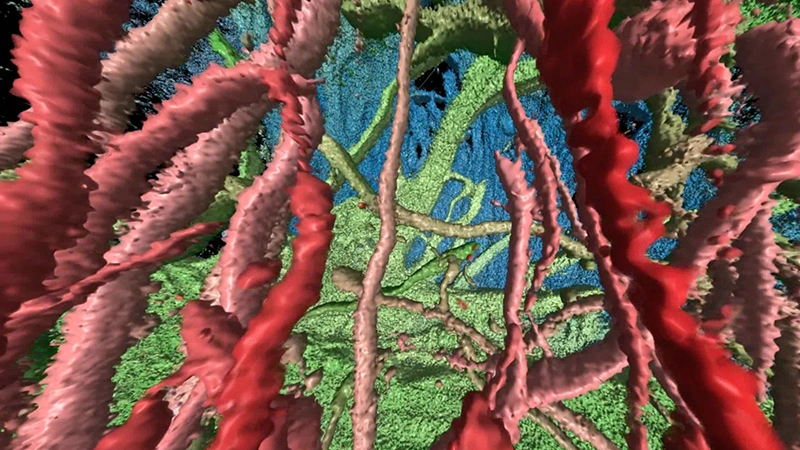Neurologic diseases place a heavy physical, emotional, and economic burden on patients and their families. We believe that we can make new treatments that will modify the course of disease and dramatically improve patient lives.

Neuroscience research at Novartis is focused on three research pillars:
- Neurodevelopment – New genetic insights and therapeutic approaches are becoming available to inform drug discovery for diseases or disorders that stem from abnormal development in the early stages of life. This informs our neurodevelopmental portfolio, which is focused on neuromuscular diseases, intellectual disabilities, and epileptic encephalopathies.
- Neuropsychiatry – We are investigating the genetic drivers and brain circuitry underlying psychiatric conditions to better understand how the brain functions in adulthood, after development, to develop potential therapies for neuropsychiatric conditions such as bipolar disorder, depression, and schizophrenia.
- Neurodegeneration and neuroinflammation – We want to better understand how the brain resists injury and ages healthfully over the lifespan to better understand neurodegeneration and neuroinflammation – two interconnected processes that contribute to disease in the aging brain. Several new pathways and biomarkers have emerged in recent years that are shaping medicines we are developing for Alzheimer’s disease, Parkinson’s disease, frontotemporal dementia, progression in MS and rare monogenic neurodegenerative diseases.
To guide our drug discovery and research efforts, we focus on human data and use technologies to develop models of disease that are more predictive of clinical benefit in patients. For instance, we use cells from patients, convert them into various cell types in the brain or let them develop into miniature brain-like organoids. In parallel, we also have the capacity to manipulate neural circuits using optogenetics - the use of light to control the activity of single neurons.
We are also developing gene therapies to address genetic conditions, especially diseases caused by the mutation of a single gene. Gene therapy works by replacing or repairing a missing or defective gene to restore normal functional protein, thereby addressing the root cause of the disease.
“The wide range of modalities now available to create therapeutics for neurological diseases, coupled with our improved understanding of disease biology and ability to do clinical trials, suggests that we’re at an inflection point in our field,” says Bob Baloh, Head of Neuroscience at the Novartis Institutes for BioMedical Research.
Reimagine Medicine at Novartis: Job Openings in Neuroscience